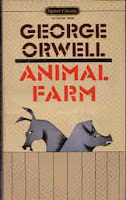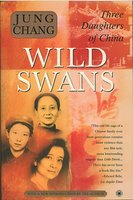 |
| A pig, yesterday. Image courtesy of www.publicdomainpictures.net |
 |
| Some banned pigs, after the ban Image from www.publicdomainpictures.net |
 |
| An OUP book that contains no pigs, but quite a lot of badgers. |
 |
| A pig, yesterday. Image courtesy of www.publicdomainpictures.net |
 |
| Some banned pigs, after the ban Image from www.publicdomainpictures.net |
 |
| An OUP book that contains no pigs, but quite a lot of badgers. |
5 STARS Dreaming Up: A Celebration of Building Christy Hale Lee and Low Books January 2013 32 Pages Ages: 4 to 8 ……………….. Children building— Concrete poetry— Inside Jacket: Pair them with notable structures from around the world and see children’s constructions taken to the level of architectural treasures. Here is a unique celebration of [...]![]()
By Kirsty OUP-UK
On Sunday 1st July 2007 a ban on smoking in public places came into effect in England. Similar bans have already been in place in the rest of the United Kingdom for some time. Virginia Berridge, Professor of History and Director of the Centre for History in Public Health, London School of Hygiene and Tropical Medicine, is the author of Marketing Health: Smoking and the Discourse of Public Health in Britain, 1945-2000. Below, Professor Berridge talks about how, while we are now used to doctors and government officials telling us what is good and bad for us, this development has only come about in the last 50 years. (more…)
 Read any of George Orwell's works online for free, including 1984 and Animal Farm at "The Complete Works of George Orwell." The books and other writings are searchable. Also included are Orwell's biography, photographs, and quotations. Both books have faced censorship.
Read any of George Orwell's works online for free, including 1984 and Animal Farm at "The Complete Works of George Orwell." The books and other writings are searchable. Also included are Orwell's biography, photographs, and quotations. Both books have faced censorship.
The Forbidden Library reports that 1984, was challenged in Jackson County, Fla. (1981) because the novel is "pro-communist and contained explicit sexual matter."
E-notes explains of Animal Farm,
Completed in 1944, the book remained unpublished for more than a year because British publishing firms declined to offend the country's Soviet allies. Finally the small leftist firm of Secker & Warburg printed it, and the short novel became a critical and popular triumph. It has been translated into many languages but was banned by Soviet authorities throughout the Soviet-controlled regions of the world because of its political content.
Orwell originally prepared a preface which complains about British government suppression of his book, self-imposed British self-censorship and how the British people were suppressing criticism of the USSR, their World War II ally. "The sinister fact about literary censorship in England is that it is largely voluntary. ... [Things are] kept right out of the British press, not because the Government intervened but because of a general tacit agreement that ‘it wouldn’t do’ to mention that particular fact." Somewhat ironically, the preface itself was censored and is not published with most copies of the book.
